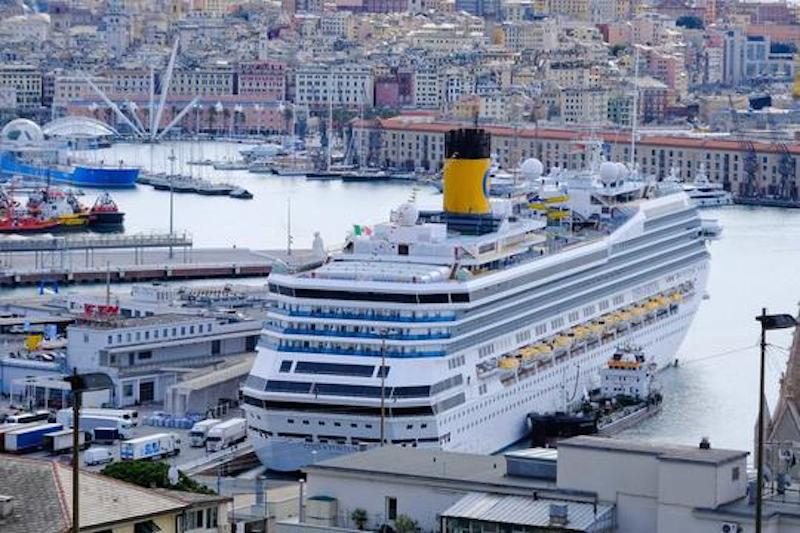
Genoa, Italy (TAN): The cruise industry has a positive impact on the European economy. The Costa Group, in a statement, said it had a total economic impact of EUR 12.6 billion (USD 13.8 billion) in Europe in 2018.
The group catered to 3.2 million guests and created 63,000 full-time jobs during this time.
These figures emerge from a study conducted by Deloitte & Touche, the University of Genoa and the University of Hamburg.
[ALSO READ: Three new Radisson hotels to come up in Lisbon, Porto and Vienna]
Shipbuilding is the most significant activity in terms of the Costa Group’s economic impact at European level, with around EUR 4.5 billion and over 20,000 jobs, owing to a fleet expansion plan that provides for the arrival of seven new ships by 2023, two of which are already in service. Also particularly significant is the income generated by the spending made by guests during the various calls, amounting on average to EUR 74.60 per passenger in every European port visited by the company’s ships. Furthermore, as a confirmation of the importance of the sector in promoting local tourism, 60% of guests say they want to return to the destinations visited.
“Cruises bring value and wealth to the cities and countries where they operate that go well beyond the common perception. Every euro spent by our group, by our guests or by our crew has a multiplying effect, creating a virtuous circle that can positively transform the local economy, guaranteeing continuity and strengthening economic stability,” said Costa Cruises President Neil Palomba. “The aim of our study is precisely to quantify this value, focusing on Europe and Italy, where we are a leader and have an established historical presence, so that more informed development programs can be built with the communities of our ports of call.”
[ALSO READ: Emirates Flight Catering announces mega plan to cut Co2 emissions]
Italy and Germany are the two European countries where the Costa Group (which includes the Costa Cruises and AIDA cruises brands) generates the greatest value. Italy in particular, which has been company’s home for over 70 years, benefits from an economic impact of EUR 3.5 billion, while in employment terms, around 17,000 jobs have been created. The main benefits for the local economy are derived above all from the presence of the company’s head office in Genoa.
Costa employs over 3,200 Italians, including the crews employed on its fleet flying the Italian flag. Also significant is the number of Italian suppliers and partners with whom the company collaborates, over 4,700, including Fincantieri and major Italian brands in the fields of design and food and beverage. Italy is also among the top destinations of the ships in the Costa Cruises Group, with 3.2 million passenger movements and 852 calls in 20 different ports in 2018.
The company has also invested in many Italian companies, including Ecospray, a state-of-the-art manufacturer of cleaning systems for exhaust fumes from ships, and is a shareholder in the cruise terminals of Savona, Civitavecchia, Venice, Trieste, Naples, Genoa and La Spezia.
[ALSO READ: Seabourn extends partnership with Unesco to promote sustainable tourism]
The study considered the three main types of economic impact: the direct impact (38% of the total impact), i.e. the expenses incurred directly by the company, its guests and its crew; the indirect impact (36% of the total impact), which corresponds to the expenses incurred by the over 10,000 suppliers and partners of the Costa Cruises Group to satisfy the direct demand; the impact on downstream activities, i.e. the economic benefits derived from the fact that the employees of the Costa Group and its suppliers and partners in turn spend their salaries to buy other goods and services, thus supporting consumption in the areas where they live.




